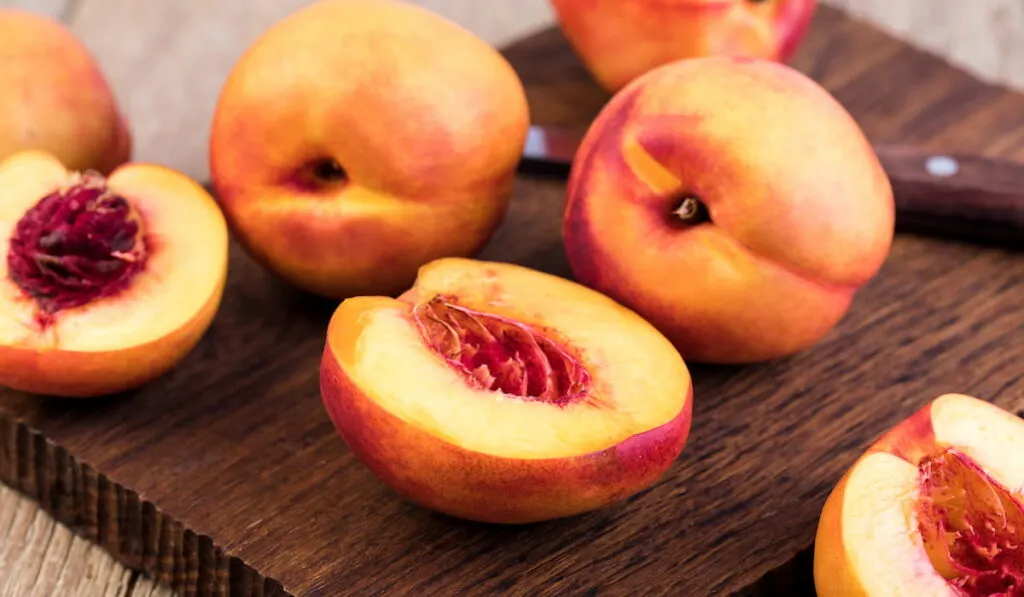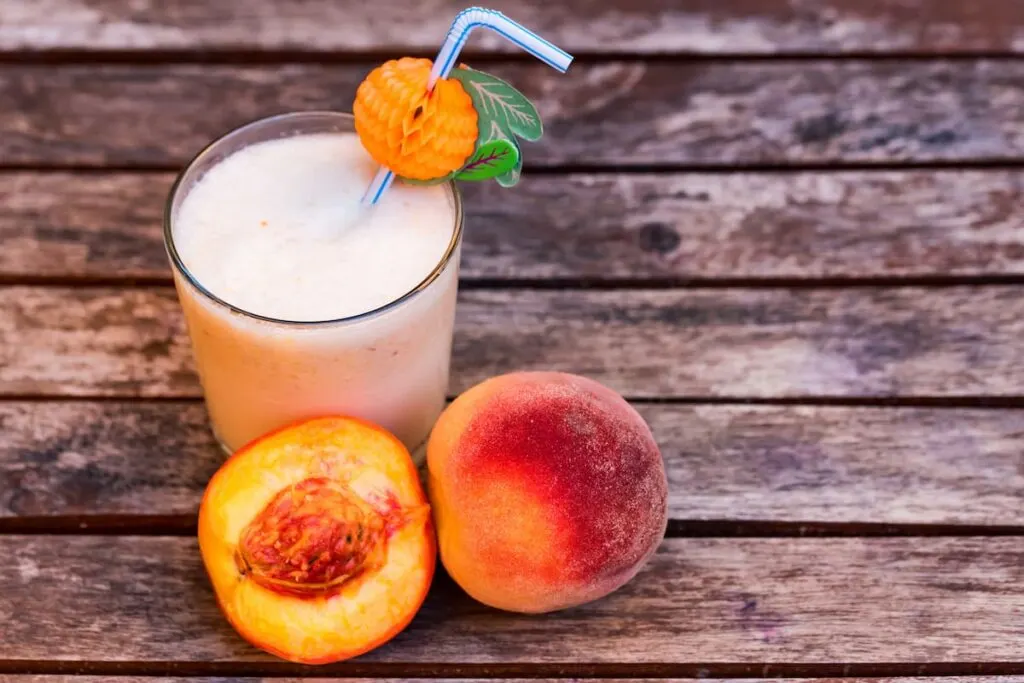Peaches have tiny little hairs all over them, which give them a fuzzy appearance. But have you ever wondered why the hairs are there? If you have, we have the answer you seek.
Why are peaches fuzzy?
Peaches are fuzzy for two main reasons, and both are protective.
The tiny hairs on peaches keep bugs and pests away from them. Also, the fuzz helps preserve them, lengthening their shelf life. While the fuzz on peaches is highly beneficial to the fruit, you may not want it in your mouth when eating one.

Below, we go into the details of why peaches are fuzzy. We also talk about removing the hairs on peaches and answer other common questions about peaches and their fuzz. Read on for more.
Table of Contents
Why Are My Peaches So Fuzzy?
Your peaches are so fuzzy because fuzziness is their defensive and preservative mechanism. In other words, your peaches are fuzzy because it saves them from bugs and rot.
The fuzz on peaches repels insects and other bugs that may attack peaches. The hairs are irritating, so those insects would rather stay away from fuzzy peaches.
Of course, if the insects stay away from the peaches, they cannot lay their eggs on them. This way, the fruits are safe from larval and adult bug damage.
The fuzz on peaches saves them from rot by preventing them from getting damp.
Without the fuzz, the thin skin of peaches would succumb to the inflow of moisture. The moisture, in turn, would promote the growth of microbes, which would also readily enter through the thin skin of the fruits.
Of course, if your peaches become a cesspool for microbial growth, they will rot or spoil.
Without the fuzz, fresh peaches will not last long. They may only remain edible for less than a week. But with the fuzz, you can expect them to stay fresh for up to two weeks after picking.

Do All Peaches Have Fuzz on Them?
Not all peaches have fuzz on them. So, if you come across a hairless fruit that looks like a peach, it may still be a peach.
Fuzz-free peaches are nectarines. In other words, nectarines are a type of peach. But unlike regular peaches, they are not fuzzy.
The difference in the textures of peaches and nectarines is genetic. While peaches have a dominant gene that codes for fuzz, nectarines have a recessive gene: therefore, no fuzz.
Of course, as you would expect, nectarines are more susceptible to attacks by pests. They also do not last as long as peaches.
How Do You Get the Fuzz off Peaches?
You can get the fuzz off peaches using various methods.
- You can scrub the hair out with a brush. But if you do this, be gentle and use a soft brush. Remember, peaches have thin skin. If you scrub too hard, you may tear the skin.
- You can also remove hair from peaches by peeling the skin. While the skin is edible, if all you want is the juicy part of the fruit, you do not need the skin.
- A relatively easy way to get fur off peaches is to wash them. Sometimes just washing them does the trick.

Can You Eat the Fuzzy Skin on Peaches?
You can eat the fuzzy skin on peaches. While the thought of eating something hair-like might be unappealing to you, doing so typically comes with no risk.
Although eating the fuzzy skin on peaches is usually harmless, some people are allergic to peach fuzz. If you are allergic to it too, you should avoid eating it.
A peach fuzz allergy typically causes symptoms like swelling in the mouth, itching in the mouth, nausea, vomiting, and diarrhea. In severe cases, it may cause anaphylaxis.
Final Thoughts
Peach fuzz is a preservative and a defensive mechanism. It keeps bugs off peaches and lowers their chances of rot.
If you do not like peach fuzz, you could opt for a nectarine – a type of peach without fuzz. You could also get the hairs off the fruit before eating it. But if you have no problem eating peach fuzz, it is safely edible.
Resources
- https://www.myrecipes.com/how-to/cooking-questions/why-are-peaches-fuzzy
- https://fruitsandveggies.org/expert-advice/can-fresh-peaches-washed-stored-fridge-long
- https://wonderopolis.org/index.php/wonder/why-are-peaches-fuzzy
- https://www.thermofisher.com/diagnostic-education/hcp/wo/de/resource-center/allergen-encyclopedia/whole-allergens.html?key=f95
- https://www.researchgate.net/publication/6980139_Peach_fuzz_contains_large_amounts_of_lipid_transfer_protein_Is_this_the_cause_of_the_high_prevalence_of_sensitization_to_LTP_in_Mediterranean_countries
